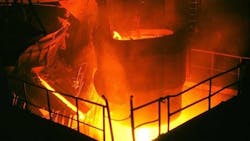Rio Tinto Investing $143M to Develop R&D Facility for Low-Carbon Ironmaking Process in Australia
Rio Tinto plans to invest $143 million to develop an R&D facility in the Rockingham Strategic Industrial Area, south of Perth, Western Australia, for assessing the effectiveness of its low-carbon ironmaking process, BioIron, and supporting decarbonization of the global steel value chain.
The development of the facility is backed by successful trials of the company's ironmaking process in a small-scale pilot plant in Germany.
“The world needs low-carbon steel to reach net zero, and we are working to make this a reality by finding better ways to turn our Pilbara ores into steel. BioIron is a world-first technology that has the potential to play a significant role in a low-carbon steel future," said Simon Trott, Rio Tinto Iron Ore Chief Executive.
BioIron uses raw biomass and microwave energy instead of coal to convert Pilbara iron ore to metallic iron in the steelmaking process. When combined with renewable energy and carbon circulation by fast-growing biomass, BioIron can reduce carbon emissions by up to 95% compared to the current blast furnace method.
The BioIron facility will include a larger pilot plant than its predecessor in Germany. The steelmaking process will be tested at a semi-industrial scale, capable of producing one ton of direct reduced iron per hour. It will provide the required data to assess further scaling of the technology to a larger demonstration plant.
The plant was designed in collaboration with the University of Nottingham, Metso Corporation, and the Western Australian engineering company Sedgman Onyx.
While fabrication of the equipment will start in 2024, commissioning is expected in 2026. The work is expected to create about 60 construction jobs. The facility will employ around 30 full-time employees and include equipment testing to support further improvement of the BioIron technology.
